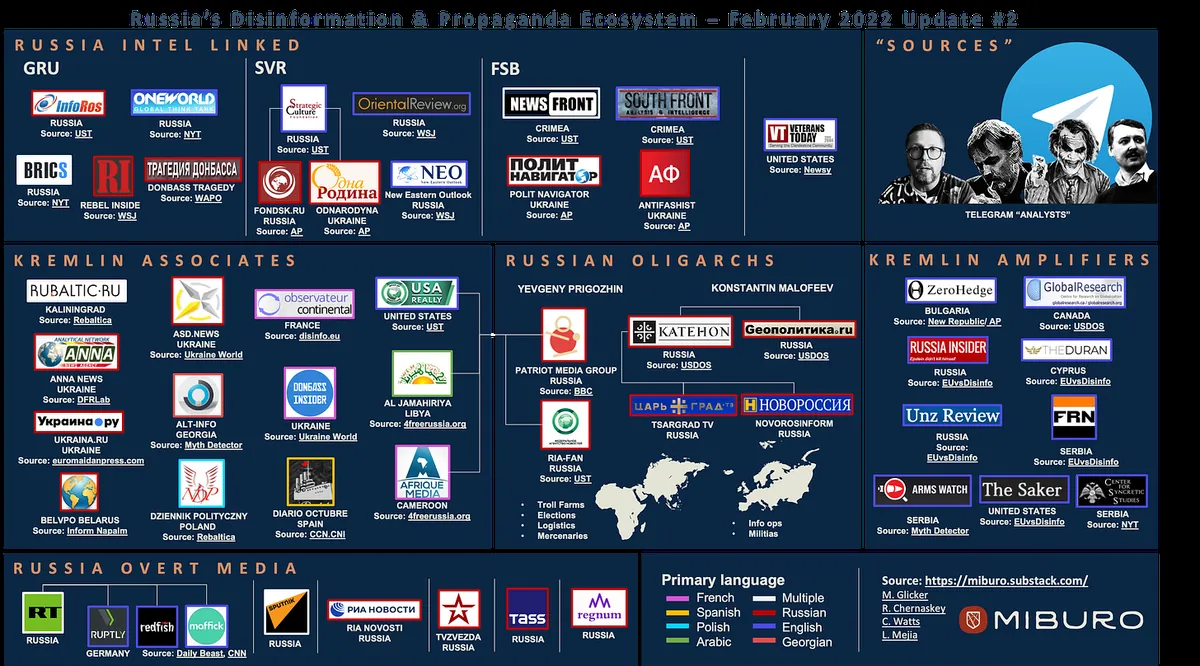Evolution of Russian Influence: From Social Media to Media Funding
US Justice Department reveals new Russian propaganda efforts, including funding US media and targeting right-wing audiences. The strategy aims to exploit domestic divisions and influence the 2024 election.

A decade ago, two Russian nationals embarked on a month-long tour of the United States, marking the beginning of a sophisticated influence campaign that has since evolved significantly. This effort, initially focused on social media manipulation, has now expanded to include funding US-based media companies and targeting right-wing audiences.
Recent actions by the US Justice Department have shed light on the current state of Russian influence operations. Prosecutors have indicted two employees of RT, a Russian state-controlled media entity, for allegedly funneling $10 million to a US-based media company. This move came after RT's ban following Russia's invasion of Ukraine in 2022.

The Justice Department has also seized several internet domains involved in covert Russian propaganda dissemination. These efforts aim to reduce international support for Ukraine, promote pro-Russian policies, and influence voters in US and foreign elections.
"The seized domains were part of an effort to covertly spread Russian government propaganda with the aim of reducing international support for Ukraine, bolstering pro-Russian policies and interests, and influencing voters in U.S. and foreign elections."
Notably, these influence campaigns align closely with America's political right. The funded media company, believed to be Tenet Media, published content from popular right-wing commentators. Documents related to the broader influence effort, codenamed "Doppelganger," explicitly indicate an intent to aid Republicans and right-wing causes.
The Russian strategy focuses on exploiting existing divisions within American society, particularly on issues such as race, immigration, and traditional values. This approach echoes earlier interference efforts, which aimed to amplify internal conflicts rather than introduce new narratives.
Donald Trump's response to the 2016 election interference allegations inadvertently aided Russian efforts. His rejection of interference claims and labeling of the Russia probe as a "hoax" helped create a narrative that dismisses any discussion of Russian activity as partisan rhetoric.
It's important to note that the concept of "fake news" gained prominence during the 2016 US presidential election. Since then, social media platforms have implemented measures to combat foreign interference. The US government has also taken steps, such as the Countering Foreign Propaganda and Disinformation Act passed in 2016 and the designation of elections as critical infrastructure in 2017.
As the 2024 US presidential election approaches, Russian influence efforts continue to evolve. Instead of creating fake personalities to elevate contentious issues, there now exists a stable of Trump-allied voices who already amplify narratives beneficial to Russian interests.
The ongoing challenge for the United States is to counter these sophisticated influence operations while preserving democratic discourse and addressing genuine domestic concerns.


































